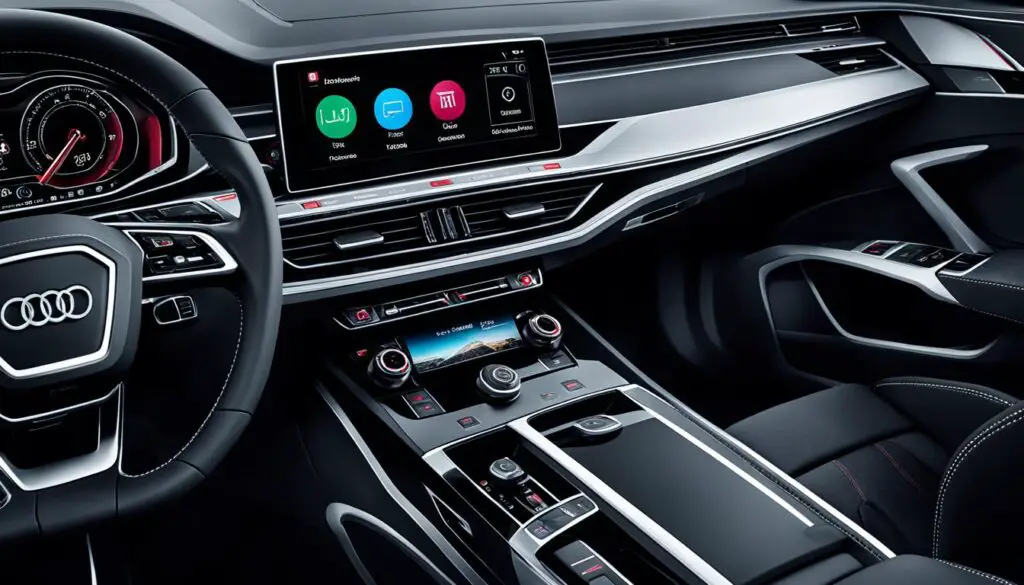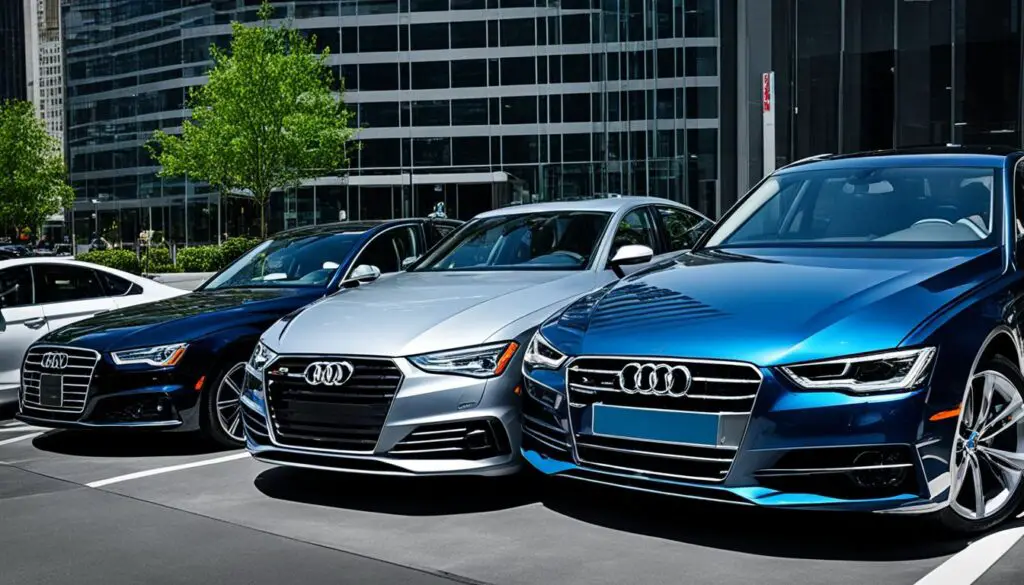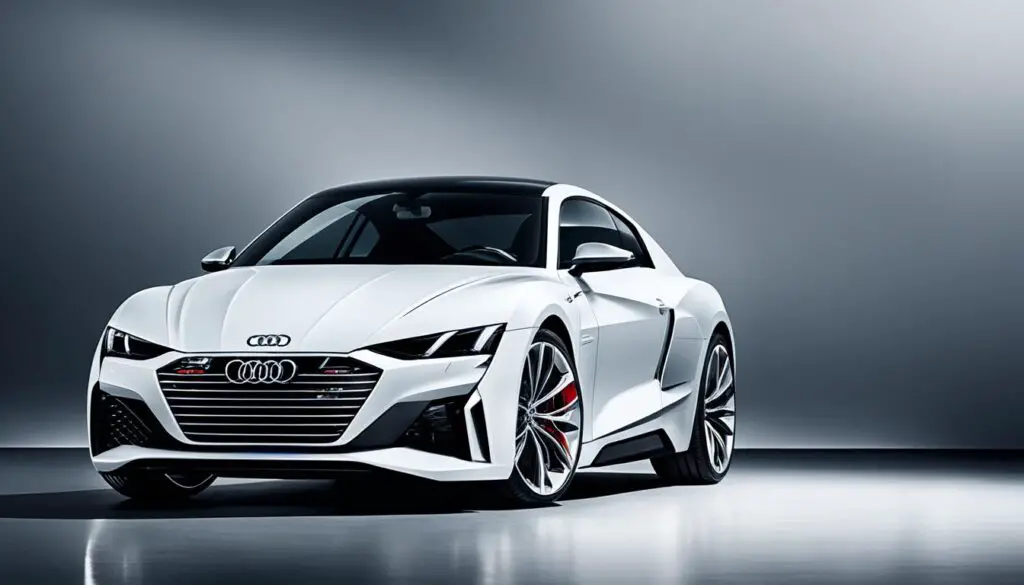In the competitive world of German luxury car brands, Audi and BMW are two prominent contenders. Both brands have a strong presence in the luxury market and offer a wide range of vehicles that cater to the preferences of affluent consumers. This article will delve into various aspects of these brands, including their performance, design, technology, and reputation, to determine which brand holds the title of being the better German luxury car brand.
Key Takeaways
- The BMW vs Audi comparison explores the performance, design, technology, reputation, and pricing of these German luxury car brands.
- Both Audi and BMW excel in different areas, making the choice between them a matter of personal preference and driving priorities.
- Audi is known for elegant designs, advanced technology, and a focus on safety, while BMW offers sporty performance, dynamic driving experiences, and a wide range of models.
- Pricing-wise, Audi generally offers more affordable options compared to BMW, but BMW has a wider range of models, including higher-performance offerings.
- Brand reputation and reliability are important factors to consider, with BMW generally receiving above-average ratings for reliability across its model lineup.
Audi vs BMW: Performance Comparison
When it comes to performance, both Audi and BMW showcase their strengths in different ways. BMW is renowned for delivering a sporty and dynamic driving experience, thanks to its diverse range of engines. These include inline 4-cylinder, inline 6-cylinder, V8, and even V12 options that provide a thrilling driving experience.
Audi, on the other hand, places a strong emphasis on performance with its advanced TFSI turbocharged engines. These engines deliver exceptional power and acceleration, ensuring an exhilarating drive. Additionally, Audi is acclaimed for its legendary Quattro all-wheel drive system, which provides excellent traction and handling, particularly in adverse weather conditions.
Both Audi and BMW have also made significant advancements in the electric vehicle segment, demonstrating their commitment to sustainability and innovation. Models like the Audi e-tron and BMW iX combine exceptional performance with zero-emission driving, offering a greener and more future-forward approach to luxury car ownership.
Whether you prefer the sporty driving dynamics of BMW or the performance-driven engineering of Audi, both brands deliver impressive performance that is sure to satisfy even the most discerning luxury car enthusiasts.
Design and Styling: Audi vs BMW
When it comes to design and styling, Audi and BMW have their distinctive approaches that embody their brand identities. BMW vehicles are renowned for their sporty and aggressive design language, characterized by bold lines and a dynamic appearance. On the other hand, Audi focuses on elegance and sophistication, showcasing clean lines and a sleek aesthetic.
Audi’s exterior design embraces a refined and understated elegance, with attention to detail that enhances its overall appeal. The iconic Audi Singleframe grille, coupled with sleek LED headlights and taillights, creates a distinct and recognizable look. The aerodynamic body shapes not only contribute to the vehicle’s efficiency but also exude a timeless style.
BMW’s exterior design, on the other hand, emphasizes a sporty and aggressive stance. The brand’s signature kidney grille and iconic Hofmeister kink are instantly recognizable, exuding a sense of power and performance. From the sleek profile to the dynamic sculpting, each line and contour is meticulously crafted to enhance the vehicle’s aerodynamics and visual appeal.
Both Audi and BMW pay great attention to interior design, utilizing high-quality materials and advanced technologies to create luxurious and comfortable cabins. Audi’s interior design showcases a minimalist and elegant approach, combining premium materials with sophisticated finishes. The focus is on creating a harmonious and ergonomic environment, where every detail contributes to the overall luxury experience.
BMW’s interior design reflects a sporty yet luxurious atmosphere, with a driver-centric layout and intuitive control placement. Exquisite craftsmanship and attention to detail are evident in every aspect, from the choice of materials to the ergonomic seating positions. The brand’s commitment to cutting-edge technology is reflected in the digital instrument clusters, intuitive infotainment systems, and advanced driver-assistance features.
To summarize, Audi’s design and styling embody elegance and sophistication, while BMW’s design language emphasizes sportiness and performance. Both brands excel in creating visually appealing exteriors and luxurious interiors, showcasing their dedication to craftsmanship and attention to detail.
Technological Innovations: Audi vs BMW
When it comes to technological innovations in the automotive industry, Audi and BMW are leading the way. Both brands have made significant advancements in their respective technologies to provide cutting-edge features and enhance the overall driving experience.
Audi takes pride in its advanced Virtual Cockpit, a digital instrument cluster that offers customizable displays and provides drivers with critical information at their fingertips. The Virtual Cockpit displays key information such as speed, navigation, and driver assistance systems, all in high resolution. This innovative technology allows drivers to personalize their driving experience and stay informed without having to divert their attention from the road.

On the other hand, BMW’s iDrive infotainment system is a standout feature that brings seamless connectivity and intuitive control to the forefront. With iDrive, drivers can easily navigate through various in-car features, including audio, navigation, and communication, using voice commands or the intuitive touchscreen interface. The system also offers seamless integration with smartphones, allowing drivers to access their favorite apps and features while on the go.
Both Audi and BMW have incorporated advanced features to enhance the driving experience. Voice commands enable drivers to control various functions without taking their hands off the steering wheel, ensuring a safer and more convenient driving experience. Touchscreens provide an intuitive and user-friendly interface, allowing drivers to access and control various functions with ease.
In addition to these features, both brands prioritize connectivity. Audi has embraced cutting-edge connectivity options, allowing drivers to remain connected to their digital lives on the road. BMW, on the other hand, has introduced innovative technologies like gesture control, enabling drivers to interact with the infotainment system using simple hand movements, and remote parking, allowing the vehicle to park itself with the touch of a button.
By constantly pushing the boundaries of technological innovation, Audi and BMW have redefined the driving experience and set new standards in the automotive industry.
From customizable digital instrument clusters to intuitive infotainment systems, Audi and BMW continue to impress with their technological prowess. Whether it’s Audi’s Virtual Cockpit or BMW’s iDrive, these advancements in technology have not only transformed the driving experience but have also set the stage for the future of the automotive industry.
Brand Reputation and Reliability: Audi vs BMW
When it comes to luxury car purchases, brand reputation and reliability are key considerations. BMW has built a long-standing reputation as the “Ultimate Driving Machine,” consistently earning above-average ratings for reliability across its model lineup. Customers trust BMW for its commitment to quality and performance, making it a sought-after luxury brand.
Audi, on the other hand, has a generally positive reputation in the luxury market. However, the brand has faced some concerns regarding reliability, with a mix of above-average and below-average ratings across its models. While Audi offers exceptional design and innovative technology, potential buyers may consider the brand’s reliability ratings before making a final decision.
Audi Reputation
Audi is renowned for its elegant and sophisticated designs, luxurious interiors, and advanced technology. The brand’s commitment to innovation and attention to detail has earned it a loyal customer base. Audi vehicles are known for their refined driving experience and cutting-edge features, which have contributed to the brand’s positive reputation in the luxury car sector.
BMW Reputation
BMW has established itself as a prominent luxury car brand with a strong reputation for performance and driving dynamics. The brand’s tagline, “Ultimate Driving Machine,” has become synonymous with exhilarating driving experiences and precise handling. BMW’s reputation for sportiness and innovation has attracted a dedicated fan base and positioned the brand as a leader in the luxury car market.
Ultimately, brand reputation and reliability are subjective and can vary depending on individual experiences and preferences. Prospective buyers should consider their specific needs, priorities, and desired driving experience when comparing Audi and BMW.

| Brand | Reputation | Reliability |
|---|---|---|
| Audi | Elegant and sophisticated designs | Mixed ratings across its models |
| BMW | Renowned for performance and driving dynamics | Above-average ratings across its model lineup |
Pricing and Value: Audi vs BMW
When it comes to pricing, Audi generally offers more affordable options compared to BMW. The base prices of comparable Audi and BMW models are often slightly lower for Audi. However, it’s important to note that BMW offers a wider range of models, including some higher-performance and exclusive offerings that come with a higher price tag. Value, on the other hand, is subjective and depends on factors like design, features, and overall ownership experience. Both brands deliver luxury and prestige, and the value perceived by consumers may vary.
Price Comparison: Audi vs BMW
Let’s take a closer look at the pricing of comparable Audi and BMW models. The table below highlights the base prices in Lithuania:
| Model | Audi | BMW |
|---|---|---|
| Audi A3 | €28,000 | €31,000 |
| Audi A4 | €35,000 | €38,500 |
| Audi Q5 | €42,000 | €45,500 |
As shown in the table, Audi models generally have slightly lower base prices compared to their BMW counterparts. However, it’s important to consider the specific models and trim levels within each brand to get a comprehensive understanding of the pricing differences.
Value Considerations: Audi vs BMW
Value is a subjective aspect when comparing Audi and BMW. It depends on various factors that go beyond the pricing. Let’s consider some important aspects that contribute to the overall value of these luxury brands:
- Design: Both Audi and BMW offer unique design languages, catering to different aesthetic preferences. The design of a luxury car can significantly impact its perceived value.
- Features and Technology: Advanced features and innovative technologies enhance the driving experience and can add value to a luxury car. Both Audi and BMW incorporate cutting-edge technology into their vehicles.
- Performance: Performance enthusiasts may prioritize factors like acceleration, handling, and engine power, which can influence the perceived value of a luxury car.
- Ownership Experience: Factors like the quality of materials, comfort, reliability, and customer service contribute to the overall ownership experience, influencing the value of the brand.
It’s important for potential buyers to evaluate their priorities and consider these factors when determining the value proposition of Audi and BMW vehicles.

Sales and Popularity: Audi vs BMW
In terms of sales, both Audi and BMW have a strong presence and compete closely in the luxury car market. BMW has historically outsold Audi in the United States, maintaining a higher market share. However, Audi has seen steady growth in recent years and has established a strong foothold globally, particularly in markets like China. Popularity can be attributed to factors like brand image, marketing strategies, and regional preferences. Both brands have a dedicated customer base and garner attention from luxury car enthusiasts.

When it comes to sales, Audi and BMW are two fierce competitors in the luxury car market. While BMW has traditionally held a higher market share and outsold Audi in the United States, Audi has experienced significant growth in recent years, solidifying its presence on a global scale. In particular, Audi has gained popularity in emerging markets like China, where its stylish and technologically advanced cars have struck a chord with consumers.
Audi’s sales growth can be attributed to its successful brand image and marketing initiatives, which have positioned it as a leader in luxury and innovation. With sleek designs, advanced features, and a focus on cutting-edge technology, Audi has managed to capture the attention of discerning buyers. Its reputation for producing high-quality, performance-driven vehicles has also contributed to its popularity among luxury car enthusiasts.
On the other hand, BMW’s longstanding reputation for delivering exhilarating driving experiences has allowed it to maintain a higher market share. Known for its sporty performance and dynamic styling, BMW continues to attract buyers who seek a thrill behind the wheel. Its diverse lineup of models, ranging from sedans and SUVs to electric and hybrid options, ensures that there is a BMW to cater to every preference.
Ultimately, the sales and popularity of Audi and BMW can be seen as a testament to the strength of both brands in the competitive luxury car market. While BMW has maintained a dominant position in terms of sales, Audi’s steady growth and expanding global presence suggest that it is a force to be reckoned with. The battle for supremacy between these two German luxury brands continues to captivate the automotive industry and fuel the excitement of luxury car enthusiasts worldwide.
Maintenance and Ownership Costs: Audi vs BMW
Owning a luxury car entails not only the initial purchase price but also ongoing maintenance and ownership costs. When it comes to maintenance, both Audi and BMW vehicles can be expensive to maintain, with BMW often having higher maintenance costs. It’s essential to consider various factors that can impact these costs, such as warranty coverage, service availability, and certified pre-owned programs.
Ownership costs, on the other hand, can vary depending on several factors. Fuel efficiency, insurance rates, and resale value play a significant role in determining the overall ownership costs of a luxury car. Both Audi and BMW offer extended warranty options and comprehensive ownership programs, providing additional peace of mind and enhancing the overall ownership experience.
To help you make an informed decision, let’s compare the maintenance costs and ownership costs associated with Audi and BMW vehicles:
| Audi | BMW | |
|---|---|---|
| Maintenance Costs | Expensive | Relatively higher |
| Ownership Costs | Variable | Variable |
As seen in the comparison table, both Audi and BMW vehicles come with high maintenance costs. However, BMW tends to have relatively higher maintenance costs compared to Audi. When it comes to ownership costs, they can differ based on individual factors and preferences, making it essential to consider various aspects before making a decision.
Factors such as fuel efficiency, insurance rates, and resale value can significantly impact the overall ownership costs of a luxury car. It’s important to research and compare specific Audi and BMW models to get a better understanding of the long-term costs associated with owning these vehicles.
Please note that maintenance and ownership costs can vary depending on several factors, including the specific model, age of the vehicle, local market conditions, and individual requirements. It’s recommended to consult with a trusted dealer or professional to get a precise estimation of the costs associated with Audi and BMW vehicles.
Conclusion: Audi vs BMW – The Final Verdict
After thoroughly examining the various aspects, it is evident that both Audi and BMW reign supreme in their respective ways in the realm of German luxury cars. Audi captivates with its elegant designs, incorporating sleek aesthetics and modern flair. The brand’s unwavering commitment to advanced technology and cutting-edge safety features is also commendable.
On the other hand, BMW stands out with its unwavering focus on delivering sporty performance and dynamic driving experiences. With an extensive range of models to choose from, BMW satisfies the diverse preferences and driving priorities of its discerning customers.
Ultimately, the choice between Audi and BMW comes down to personal taste, individual requirements, and driving objectives. It is highly recommended to take test drives of both brands to fully appreciate their unique design elements, performance characteristics, technological innovations, and overall value for money. Whether you prioritize elegance, advanced technology, or thrilling driving experiences, both Audi and BMW epitomize the pinnacle of German luxury automotive engineering, offering unmatched levels of luxury and excitement to their loyal customers.







